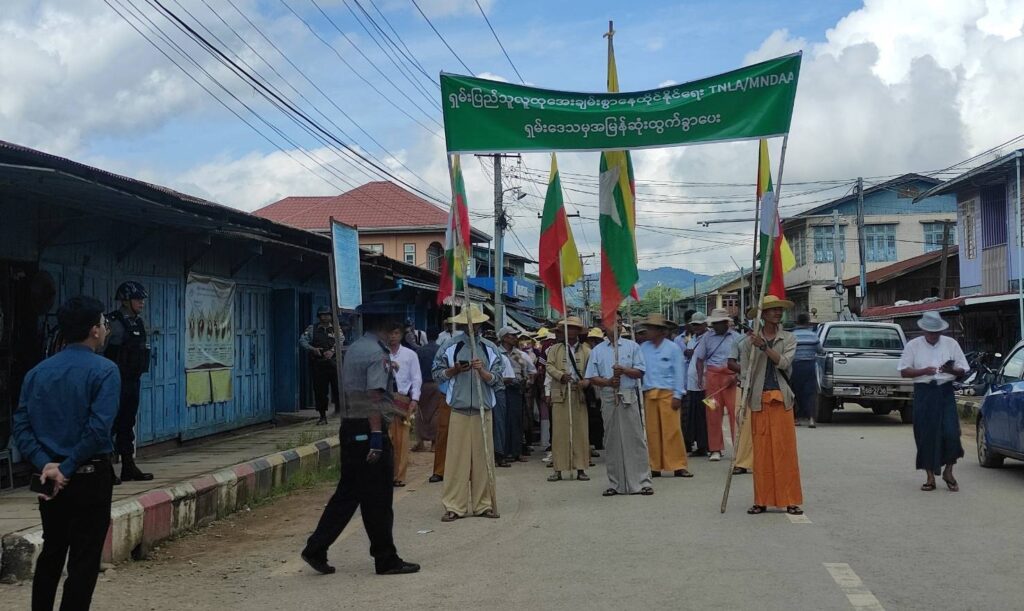U Aye Maung, Vice Chair (2) of the Ta’ang (Palaung) National Party (TNP), said recently that they will continue to work for the establishment of a new state, as it is their right.
He explained that if a federal union is formed, the Ta’ang people will demand their own state in order to govern freely in their own region.

U Aye Maung stated, “Forming a new state is our right—it’s the right of an ethnic nationality. Any group that wants a state of its own has the duty to demand it. If there’s something to request, we must request it; if there’s something to be given, others may give, but the responsibility to demand rests with us. Every ethnic group wants self-administration and federalism. This is why we must keep asking. For example, the Wa have asked, and now the term ‘Wa State’ is already being used. For the Ta’ang, ‘Ta’ang State’ is now also being used by the TNLA. It’s our responsibility to demand it, and our stance is shifting in this direction.”
He added that the Ta’ang National Liberation Army (TNLA), civil society organizations, and the TNP have together established the Ta’ang Land Council (TLC).
Currently, the TNLA is reportedly using the term “Ta’ang State” to refer to large parts of northern Shan State that it captured during Operation 1027, while also setting up administrative mechanisms there.
Currently, Myanmar is composed of seven regions, seven states, five self-administered zones, one self-administered division, and one union territory.
Colonel Khun Okka, Chair of the Pa-O National Liberation Organization (PNLO/NCA-S), said that the emergence of new states must be legally recognized in building a federal democratic union; otherwise, the federal model would remain incomplete.
“The creation of new states is an integral part of federal principles. In every federal country, there were states at the beginning; later, new ones emerged. If a federal constitution allows it, then new states can legally emerge. It should not come through armed struggle but through constitutional provisions. For example, the United States started with 13 colonies and now has 50 states. Without the emergence of new states, federalism would be incomplete. India also started with a certain number of states, but today it has 29, many of which were created after independence in accordance with the law,” he explained.
He further noted that only states established according to an accepted federal constitution would be recognized as legitimate and that ethnic armed organizations in ceasefire agreements have been demanding that the right to create new states be guaranteed in the new federal union constitution.
While discussions continue on forming a Bamar State for equality in a federal union, the issue remains contentious among political actors.
Currently, the Wa, Ta’ang (Palaung), Pa-O, Shan-ni, and Lisu ethnic groups are demanding the formation of new states, while various ethnic armed organizations are also pursuing different political goals—ranging from federal union building to calls for confederation.

